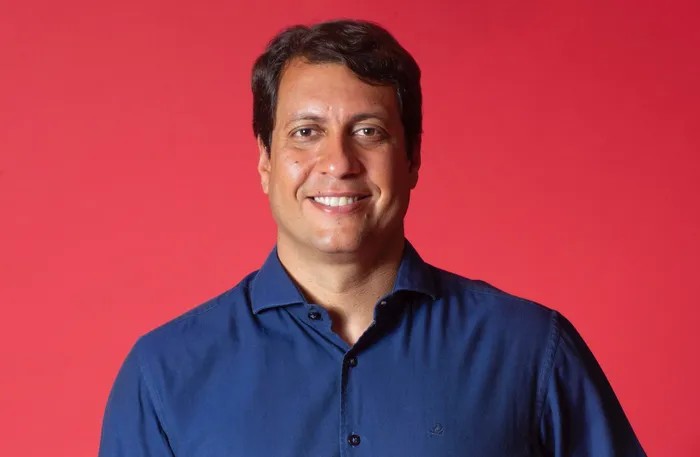
Prosus CEO Fabricio Bloisi said at their 2024 Capital Markets Day that he expected that the global internet group, which had constantly reinvented itself originally from a printing company in South Africa, was expected to report sustained earnings growth over the next few years.
Image: Supplied
Prosus has structured plans to increase earnings before interest, tax, depreciation, and amortisation (Ebitda) by 3.5 times in three years from the results reported this week, CEO of the Amsterdam based and JSE listed internet group, Fabricio Bloisi said Tuesday.
He said in a presentation at the Naspers subsidiary’s Capital Markets Day that this target would likely also include some acquisitions. He stated that while this was not an overly “aggressive target”, the world remained a place of many uncertainties at present, and they did not wish to provide a detailed description of their plans.
He also said that the share buybacks would continue. The group had already bought back 29% of its shares since it listed in 2019. “The discount (to net asset value) that the share is trading at is around 30% at present, a great opportunity, don't lose it,” he told an auditorium of investment specialists and researchers, and staff, in Amsterdam.
He said that in the past financial year - the results were published Monday - the strong growth had been based on a 32% increase in dividend from the investment in China internet giant Tencent. The group's Ebitda had increased by more than 100%, group costs had increased by 10%, and the dividend was raised by 100%.
In the 2026 financial year, the dividend from Tencent had increased by 24% so far. The group anticipated an increase in Ebitda of at least 83%, and the intention was to reduce group costs by 10%, “which will provide us with a great opportunity to grow. Some might say this is optimistic, but we have shown that we deliver,” he said.
He expressed confidence that the management of the group, which has some 2 billion customers in Europe, Souoth Africa, India and South America, would continue to grow substantially in the next few years based on the fast uptake of its AI-linked food service, fintech, and ecommerce innovations and through the optimisation of its workforce and ecommerce platforms.
He mentioned that in the past financial year, the first he had been in office and since the group embarked on a new strategy, some $2.6 billion of businesses had been sold or closed, and the management had to take many decisions that were difficult as it entailed selling or closing businesses that “are not winning” and which had involved the loss of staff.
He said that their business culture was based on “keeping optimistic until you prevail, but on the other hand "we face the brutal facts.”
He said they intended to build the biggest AI-driven lifestyle and ecommerce company outside the US, and the only way to be the best company during the next five years, which was predicted to be the biggest and fastest wave of global change due to AI in three hundred years, was to be the leader in this change.
Unlike start-ups, however, and unlike other large global internet groups that were able to write $10 billion cheques to acquire news business, Prosus had already 10 trillion tokens of data at its disposal from which to develop its AI business, he said.
Prosus’s ecosystems span three core geographies: Europe, Latin America, and India, which are large markets where there is “clear space and an open field of opportunity,” he said.
He mentioned that Europe, with almost the same size economy as the US in terms of GDP, held significant potential through further ecommerce innovations, but while the group complies with all European Union regulations, he believed the market was over-regulated.
He said that in global internet markets, waiting two years for a decision means “we are already lost.” He noted, however, that recent interactions with the European Commission had provided some indication of greater flexibility in the future.
Euro Beinet, Global Head of AI and Data Services at Prosus, said they had increased the number of engineers more than tenfold from the 60 they employed in 2018. He said that the group had so far developed some 800 different AI models for its business, and more than $100 million had been invested in AI development.
He added that the group had also invested in more than 20 AI start-up companies that were developing models that could aid the group workforce or that could help reinvent the group’s ecommerce offering. The intention was over time to be able to make every single digital surface or platform an AI interface.
BUSINESS REPORT
Visit: www.businessreport.co.za